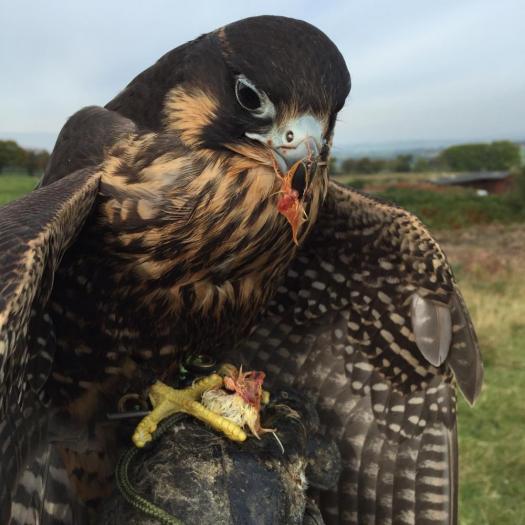
DEREK CANNING LLB[HONS]
-
Content Count
716 -
Joined
-
Last visited
Content Type
Profiles
Forums
Gallery
Articles
Gun Dealer's and Fieldsports Shop's
Reloading Room
Blogs
Calendar
Store
Classifieds
Posts posted by DEREK CANNING LLB[HONS]
-
-
On 04/03/2018 at 14:25, DEREK CANNING LLB[HONS] said:
It may help to petition your MP.
Any replies?
-
It may help to petition your MP.
-
-
Good to see falconry in a positive light.
-
The RSPCA are only interested money.
http://www.rspca-animadversion.org.uk/The%20Attorney%20General%20v%20The%20Rspca.htm
-
He just disappeared.
-
-
Strange clandestine club that will not give you a reason why you cannot join even though they claim to represent all falconers and breeders.
-
 1
1
-
-
IS IT RIGHT OR WRONG? http://www.thepetitionsite.com/934/932/620/remove-the-royal-charter-from-the-rspca/#
-
-
 1
1
-
-
Our way of life is threatened.
Lee Featherstone
1 min · Birmingham
so COTES has a review, answers must be in by tomorrow 10/03/2015, please copy and paste and send by email to the address i post after this lot, please attach your name and address at the top of the email and then copy below...please send it is important and in all our interests to get things changed.
1.1. Interested parties. In our estimation this ought to include the purchasers/consumers/end users of specimens.
1.2. UK is a member of the EU, which is a single CITES area. We should be promoting common regulations across the EU.
1.3. Value of trade: The UK trade in birds of prey is restricted to domestically produced animals and these regulations should be supporting and enabling that trade.
1.11. As a CITES signatory you have an obligation to support legal sustainable trade. This is a central tenet of CITES. Thus controls must not be so onerous that people cannot comply. We must also manage the source populations of the sustainable supplies. With regards to birds of prey, JNCC are not expert in captive populations and the decisions that they make take no consideration of them. This results in the project of maintaining genetic diversity within our domestic populations becoming very difficult. We observe that for many species, the UK domestic populations are of the same order of magnitude as the UK wild populations.
2.1. Wildlife crime in the UK relating to illegally taking or trading in wild birds of prey is negligible. Wild birds of prey are frequently persecuted and this should be the focus of our legislative efforts. The increasingly complex and one might say obtuse, regulations have criminalised otherwise law abiding individuals who fall foul of 'paperwork offences'. These people keeping legally obtained birds of prey from captive breeding, have been vigorously prosecuted for failing to comply with unnecessarily complex regulations. This is a misuse of the legal framework.
2.5. Falconers, breeders and bird of prey keepers are for the most part experts who work with raptors every day. In terms of handling and identification these people are second to none. Please do not overlook this resource of expertise by bypassing it in favour of veterinarians or others who claim subject knowledge.
2.7.Seizing: Who is the individual who comes and catches up the bird of prey? How will the police ascertain that they have sufficient expertise? Will this be based on the say-so of an NGO such as the RSPCA? How will you ensure that the raptor will be humanely caught and handled? It is well documented that legal falcons have been killed or injured during these seizings. Will the subject animal be transported humanely? And where will it be accommodated? How long will it be held there for?
Evidence can be gathered without the bird being moved from its accommodation, seizing is both contentious and largely unnecessary.
2.8. Sting operations: We object fundamentally. There is no place for such practice here. I refer you to 2.1
2.9. It is incumbent on you to demonstrate how the proposals will reduce red tape. We cannot see how these ideas will achieve such.
2.15. In order to reduce travelling time for the live animals, approved ports ought to be as geographically accessible across the UK as possible.
5.4. By producing increasingly complex legislation you are creating a situation where individuals cannot reasonably decipher or navigate such without legal assistance. This is both poor practice and discriminatory.
Proposal E: if breeders/owners return these documents and at a later date need to prove parentage or prior ownership, how are they meant to do this if all documents have to be returned to avoid prosecution?
Proposal F: surely if this is to bring the UK in line with current EU legislation then it begs the question why we have different annexes. In relation to commercial use, it would be useful to have clarification with examples, of what commercial use is, if it’s on the .gov web site it is not easily accessible.
Provision G: The good thing about this idea is that it MIGHT cut down on individuals being prosecuted for passing items on without the paperwork, but, if anything is going to cause problems for end users it will be this. For it to work you will need to ensure that it is VERY well circulated (by contacting EVERY individual/company/organisation) on your database that has ever had a CITES certificate to make sure they know what’s required.
Provision H: If this is adopted then individuals who follow the rules have nothing to fear, but this could be seen as entrapment.
Provision L: Great care needs to be exercised when placing confiscated live animals, the police/RSPCA/RSPB do not fit these criteria. The individuals doing the seizing also need to be experienced.
Civil sanctions as an alternative to prosecution: At the time when the Law Commission is reviewing wildlife legislation and civil sanctions are being proposed as an alternative to prosecution, they must not be dismissed out of hand.
This avenue has been talked about during CSUG meetings for over 12 months and it appeared that the management authorities considered them as a suitable method for dealing with paperwork. Recent paperwork prosecutions that have cost the tax payer thousands of pounds to bring defendants to court to receive £25-£ fines is a clear case of a need for their use.
fines is a clear case of a need for their use.
email to COTESReview@defra.gsi.gov.uk -
-
-
-
-
-
what a joke
This does not look like a joke.
-
Bill Oddie has to be a joke.
http://wundergroundmusic.com/bill-oddie-arrested-for-using-homing-pigeons-to-smuggle-drugs/
-
-
-
-
The RSPB poisoning birds.
https://www.whatdotheyknow.com/request/poisoning_of_sea_birds_by_the_rs#comment-11554
Scottish Natural Heritage, Battleby, Redgorton, Per
th, PH1 3EW
Tel 01738 444177 Fax 01738 458611 www.snh.org.uk
Mr David Street
By Email: DAVID STREET
request-34619-73029c9a@whatdotheyknow.com
07 July 2010
Our ref: A421875
Dear Mr Street
Review of SNH Response to Information Request
Thank you for your request for an internal review o
f our response to your recent information
request. We considered your request under the Envi
ronmental Information (Scotland)
Regulations 2004 (the ‘EIRs’).
From the review that I have undertaken I am satisfi
ed that the correct procedures were
followed at the time of your original request and t
hat we conducted a thorough search for
information in response to it. I am writing to inf
orm you that I therefore support our response
to your request and the explanation contained in ou
r letter dated 1 June 2010. I do however
find that we could have been clearer in telling you
that we do not hold the information you are
seeking, and that an EIR exception therefore applie
s in this case.
Your request asked us for information about a speci
fic licence that you believed had been
issued to the RSPB, and about the numbers of birds
that were poisoned as a result. We
replied that, having completed our searches of the
information we hold, we could confirm that
Scottish Natural Heritage (SNH) had never issued li
cences to the RSPB, or anyone else, to
poison sea birds in the Firth of Forth. In your re
view request you stated that you had been
told that birds had been poisoned after the 1981 Wi
ldlife Act, and that this had been done
under general licence.
In response to your review request, I have ensured
that we have again conducted a
comprehensive search of our information holdings.
This has confirmed that, as explained in
our previous response, we are aware of poisoning ha
ving been carried out on certain islands
in the Firth of Forth in the 1970s and 1980s. A fu
rther document that we have unearthed
shows that this occurred up until 1989.
Prior to the enactment of the Wildlife and Countrys
ide Act in 1981 the licensing of such
activities was the responsibility of the Secretary
of State for Scotland. After this Act came into
force, this activity could be licensed by either th
e Scottish Secretary of State or the relevant
Nature Conservancy Council. The relevant Nature Co
nservancy Council in this case would
have been the Nature Conservancy Council up until 1
991, the Nature Conservancy Council
for Scotland between 1991 and 1992, and from then o
nwards Scottish Natural Heritage.
SNH can find no record that we have issued any lice
nces to permit such work. To the best of
our knowledge, therefore, we do not hold the inform
ation you are asking for. We believe that
in these circumstances it is appropriate to apply t
he exception under Regulation 10(4)(a) of
the EIRs – Information not held – in this case.
A421875
2 cont...
You mention that you understand that poisoning was
carried out under a general licence.
SNH does not issue general licences. The Scottish
Government uses general licences in
certain circumstances but we are not aware of any h
aving been issued to cover the use of
poisons.
Appeal Process
I hope that the information that we have provided t
o you makes our position clear. I am
satisfied that we do not hold any records which we
can provide in response to your
information request.
We must explain your rights of appeal. The EIRs ma
ke provision for applicants to appeal to
the Scottish Information Commissioner for a decisio
n on whether their request has been dealt
with in accordance with the Regulations. Should yo
u wish to lodge such an appeal, the
Scottish Information Commissioner can be contacted
at this address:
Scottish Information Commissioner
Kinburn Castle
Doubledykes Road
St Andrews
Fife
KY16 9DS
Telephone: 01334 464610
http://www.itspublicknowledge.info/
Yours sincerely
John Thomson
Director of Strategy & Communications
-
Ian Botham.
Does anyone have the contact details for Ian?
Try Twitter, or these guys
http://www.essentiallygroup.com/Home/Sports_Media_Talent/Sir_Ian_Botham/default.aspx
Thank you.
no worries, and good luck

It is all in hand now. Anyone with a provable story about the RSPB doing something wrong please contact me.
-
Ian Botham.
Does anyone have the contact details for Ian?
Try Twitter, or these guys
http://www.essentiallygroup.com/Home/Sports_Media_Talent/Sir_Ian_Botham/default.aspx
Thank you.


Looking for Jasper
in Falconry
Posted
He is on Facebook.